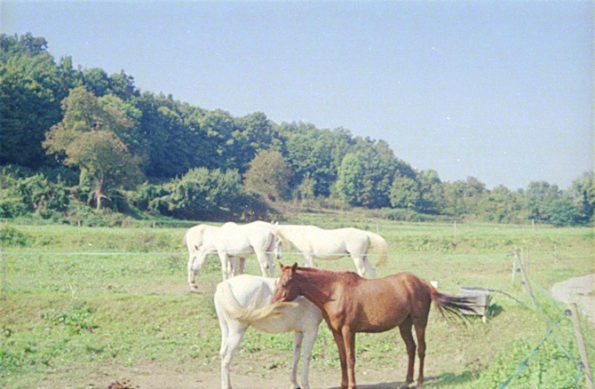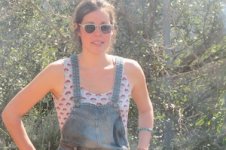Search
To search for an exact match, type the word or phrase you want in quotation marks.
A*DESK has been offering since 2002 contents about criticism and contemporary art. A*DESK has become consolidated thanks to all those who have believed in the project, all those who have followed us, debating, participating and collaborating. Many people have collaborated with A*DESK, and continue to do so. Their efforts, knowledge and belief in the project are what make it grow internationally. At A*DESK we have also generated work for over one hundred professionals in culture, from small collaborations with reviews and classes, to more prolonged and intense collaborations.
At A*DESK we believe in the need for free and universal access to culture and knowledge. We want to carry on being independent, remaining open to more ideas and opinions. If you believe in A*DESK, we need your backing to be able to continue. You can now participate in the project by supporting it. You can choose how much you want to contribute to the project.
You can decide how much you want to bring to the project.

One day I had a dream, a dream-dream, one of those you have when you sleep, not one of those dreams you have when you are awake. I dreamt that I left the house and afterwards couldn’t find the entrance again. I went round and round in circles, until muddying my boots far from the city I came to a meadow and opened one of those gates, made of wire, to stop animals from escaping. In the meadow there was a horse, or several horses. I’d got lost but it was marvellous. It was only shortly afterwards that Quim Packard told me he wanted to take a horse to close the exhibition Cómo perderse en Alaska in the Capella de Sant Roc in Valls, curated by Jordi Antas. I had been to the opening and then, rather than a horse there was a dragon. According to what I was told, it was a bearded Australian dragon. Enclosed in its glass case, the dragon observed those who went up to look at it, with a face of leave me in peace, Alaska is neither here nor there to me, I come from Australia and I wouldn’t go to Alaska even if I was mad. I’m the object of your study, your rarity, the Other. You don’t know who I am, or where I come from or where I’m going. But you need to put me in a box and think you can give me whatever name you want in order to make me participate in your, by no means transcendental, problems regarding how to organize the world. Alaska is a long way away and its very cold there. I’m not a work of art, nor even something you can observe and classify, your museums are a lie like any other, and what’s more you’ve put me on the altar. So from here I proclaim that you’ve got it all wrong. Giorgio Agamben explained in a text titled Magic and Happiness that all things have a ‘secret name’ that we are not familiar with, as we only have the name we have imposed upon them. The only way to recuperate the magic name is, like little children do, to give invented names to things. Because, according to Agamben, the problem is not our ignorance of the magic name, so much as the impossibility of ridding ourselves of the imposed names. Even though all names, before they are imposed, are invented. What Agamben perhaps wants to say is that magic is the stuff we don’t know, the more names we invent, the more magical relations we generate, and that ultimately magic is happiness, because happiness is when we don’t know it’s there. To close the exhibition they took a horse to it, a horse with the name Bolero, and a nickname, Pupis, because he’s always hurting himself. But I couldn’t get to see it. In any case we are more used to horses, we’ve domesticated them, they don’t give off the aura of exoticism and strangeness emitted by Australian dragons. I don’t know if Bolero would want to get lost in Alaska, undoubtedly, he would want to be a wild horse. Wild! To be the object of desire of all those who want a horse, of all those who want to lose themselves in Alaska, thinking that they would be freer there. All those who want to become a horse in their next reincarnation. Before Nirvana. To be a horse is almost like reaching Nirvana. Particularly if it’s a wild horse. In Alaska. Adrian Schindler mounted Bolero, and according to what I’ve been told Eulàlia Rovira led him. The typical equestrian statue. Adrian and Eulàlia had made the sound track, or audio-guide, with the story of two German horses that accompanied the exhibition, saying “Man and horse remain close to one another, it is not clear who leads who. They carry out a joint function. They are equally important and are inseparable. Which of the two could be substituted?” The horse grants man strength, that is to say an exchange is generated. The beast represents the strength of the rider, while the rider grants him the power of representation. The Chinese horoscope says that each beast in the horoscope has positive and negative powers. The dragon is powerful, very powerful, it has supernatural powers, it’s magic, but it is an imaginary beast. If you don’t believe in it, it doesn’t exist. By nature it is lost in a fantastic imaginary. The horse is on the ground, working alongside man and demonstrating its strength. It is a real strength. This makes me think of another horse, a magic horse, Artrax, which lost hope and drowned in a lake of sadness. A horse with human feelings.
One of the things that we have done in our endeavour to organize the animal, vegetable and mineral world, what we ultimately call the “natural world”, are the museums of Natural Sciences. Has anyone been ever to the Museum of Natural Sciences in Paris? It’s full of skeletons. That is the old museum the new Museum of Natural Sciences is full of sculptures, made of something that looks like polystyrene, which endeavour to imitate wild animals. Ideal reproductions, stagnating and Machiavellian. In the exhibition of the Capella de Sant Roc, the only mediating device was a table, a design by Enzo Mari, designed so that you could make it on your own at home. On top of the table there is a large still life. Books, stones, sticks, drawings, hiking boots, traps, cockroaches embedded in plastic amber, DIY construction manuals, shells, real plants, fake skins, a tortoise shell, wood painted to imitate wood, travel novels, a poster for Jurassic Park, a plastic carton of milk, glass jars with things in them that I’m not sure are real or imitation. All these things have a secret and a given name, a taxonomy. They have been classified and placed in a museum at one point or another in their existence. To name things is to appropriate them. To make them participate in your world, your mental museum. Alaska is the name of a place. It is the construction in the collective imaginary of an uncivilised place, a place to lose the names imposed on things. But the lizard has already told us that he doesn’t want to go there, that we should go hither. Agamben says that there is only one possible form of happiness: to believe in the divine but not aspire to reach it. This makes me think, as the dragon insinuates, that if we were to go there Alaska would lose all its imagined charm. Perturbaciones is the title of the programme of which this exhibition forms part. Jordi Antas proposes the perturbed state as a possibility for liberation from the pre-established, for transformation and changes in shared structures. The possibility of a magic invented name, a possibility to escape to Alaska.
A few days after my dream with the horses, a friend put on Facebook some photographs from a day when he must have gone on a trip. One of the photographs was the image I had seen in my dreams, some horses in a field.

Caterina Almirall has only just been born into this world, but has lived in others, in similar parallel worlds, both liquid and solid. From each she has learnt something, and forgotten something else. Learning to unlearn. In all of these worlds she has been caught up in a web that interweaves everything, some call it ’art’…Entwining, unravelling, weaving and destroying this labyrinth has been her occupation in each one of these planets, and she fears that it will be the same in each of the ones to come.
"A desk is a dangerous place from which to watch the world" (John Le Carré)